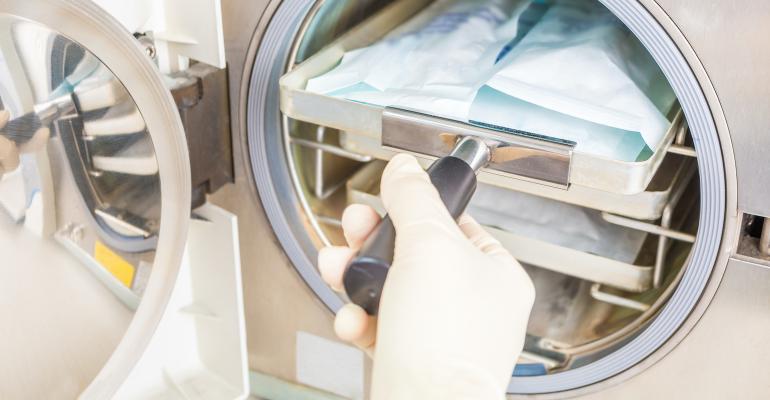The pandemic has changed the outlook on the sterile processing, even for those working in the same healthcare facilities, discussed healthcare professionals at the three-day Patient Safety Virtual 2021 conference that started today.
Panellists at the session on “International Association of Healthcare Central Service Material Management (IAHCSMM) - View from the IAHCSMM Board: A candid conversation on the future of sterile processing” moderated by Damien Berg, Vice President of Strategic Initiatives for IAHCSMM, discussed that over the past five years, regulatory agencies have been paying more attention to the sterile process in healthcare settings.
Monique Jelks, Sterile Processing Expert; Board Member, IAHCSMM said, “Over the last year, people realised what we do because now everyone wants everything sterilised so that they don’t get Covid.”
She also said: “Over the past year, we have taught people more about sterile processing than we have done for people who were from non-surgery because they wanted Personal Protection Equipment (PPEs) sterilised. We also had the big push for the N95 mask because everyone is trying to figure out how to reuse it.”
“This is our new normal and we are looking at the next phase of our years of being recognised as sterile processing professionals.”
The panellists also discussed that it was not time to create job processing professionals not just technicians but individuals who have chosen this field as a career and as professional healthcare workers.
Casey Czarnowski, Sterile Processing Educator, Stanford Health Care; Board Member, IAHCSMM said, “What gratified me being a sterile processing professional was when people would come and say can you guys handle Covid? and I’d say we’ve been handling Covid for about like 50 years now. We clean and sterilise whatever you need and we know Covid already.”
Jelks added that JCI decided 10 years ago to look into the sterile processing department.
Marjorie Wall, Director of Sterile Processing, Kaiser Permanente; President-Elect IAHCSMM Board of Directors added: “Global issues related to infections in 2015 was a wakeup call for the industry. For us to be able to continue growing and innovating in our field, we had to get comfortable in two things – one is giving voice to our technicians and building them as professionals and making them feel safe (psychologically), to be able to speak up, give their ideas about how to improve and work safely in our department.”
The second thing, she said, “Is to get comfortable with change and innovation and also work on data and understand it, open up ourselves to Artificial Intelligence, visual recognition and technology which will push our field into the next generation of innovation and people success.”
Czarnowski said that advancement of hydrogen peroxide sterilisation and the leaps and bounds it had taken, not only in technology but also manufacturers understanding it has had a big effect, especially during Covid.
Jelks said that robotic technology had also changed the way instruments used for sterilisation were being reprocessed.
“Inspection is going to be more critical now since every product has been updated and has an expiry date.”
Brian Reynolds, Assistant Chief of Sterile Processing Service, V.A Medical; Board Member, IAHCSMM said that it was important to listen to staff instead of comparing data all the time.
“The data isn’t the one that is putting out or dealing with patients day in and day out. Having the knowledge and expertise of the staff is key because they are doing it every day. We often get to the point where we say the data says this but we don’t listen to the people who are doing the actual job.”
The panellists said that it was important to keep talking about the profession of sterile processing. “Right now we are operating in a bubble which we need to break out of and talk about how we are keeping patients safe,” added Jelks.
They concluded adding that challenges within the industry were internal conflicts. Focus should be on building strategic relations with hospitals, infection prevention, management as well as administration, they said.

